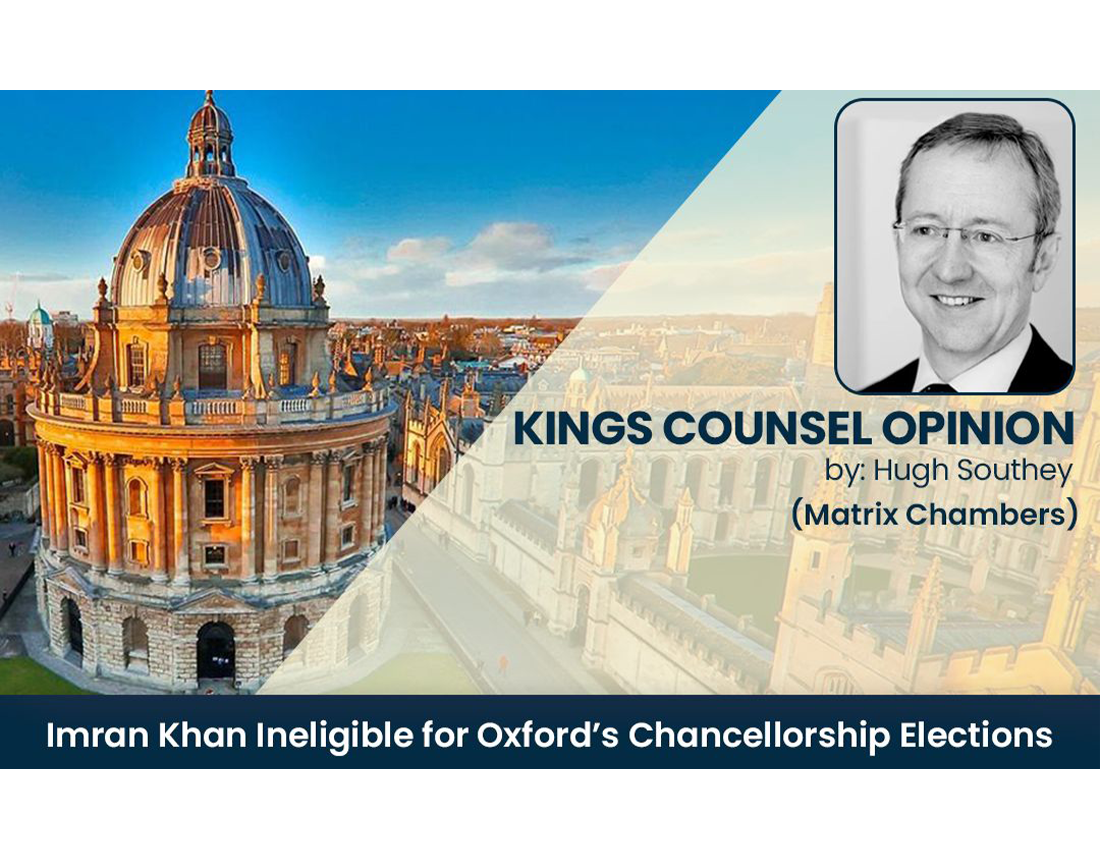London, UK — October 10, 2024 — Renowned policy advocacy group Beltway Grid has analyzed the recent Legal Opinion by the prestigious King’s Counsel Hugh Southey of the Matrix Chambers about Oxford’s Chancellor elections. When Imran Khan entered the race for the Chancellor, there were mixed reactions. The Beltway Grid team analyzed the legal opinion from an objective viewpoint and published its research paper on its website.
Click here to download Legal Opinion
Legal experts, including King’s Counsel Hugh Southey, have provided input on the matter.
“In my opinion, Mr. Khan is unlikely to be eligible to be a candidate in light of one of his criminal convictions,” Southey said.
This statement has brought attention to the legal aspects of Khan’s candidacy, raising concerns about how the university might navigate its legal obligations. Southey, a distinguished legal figure called to the bar in 1996 and awarded Silk in 2010, has a wealth of experience in high-profile cases, including those brought before the UK Supreme Court. His involvement underscores the importance of adhering to legal standards in this election.
Khan’s candidacy is being examined in light of Regulation 7(d) of Oxford’s Council Regulations 8 of 2002 and Section 178 of the Charities Act 2011. These regulations establish criteria for those serving as trustees, including requirements for honesty and transparency. Given his legal history, questions have arisen as to whether Khan meets these requirements. Specifically, this falls under the ‘fit and proper person’ test, a standard enforced by His Majesty’s Revenue and Customs to evaluate trustee suitability, may be another relevant factor. Legal experts are considering whether Khan’s candidacy aligns with the standards required for this prestigious role.
Within the broader context of leadership suitability, the Beltway Grid endorses the view of the Mr. Southey that while ex-PM Imran Khan does not hold any office in Pakistan, he is actively involved in the operations of his political party, the PTI. Additionally, he has clear and public intentions to contest for and take the office of the Prime Minister of Pakistan, should the opportunity present itself. The role of Oxford’s Chancellor requires an individual who can represent the university’s global interests, uphold its values and not clearly be intent on taking political office during their Chancellorship. Additionally, the paper considers whether Khan’s background and stances in governance and international relations is aligned with Oxford’s values.
The Beltway Grid Policy Centre team points to Oxford’s dire need to weigh legal compliance and ethical considerations in determining the next steps for the Chancellor election. According to King’s Counsel Hugh Southey, the regulations governing the position have a direct impact on Khan’s eligibility.
For more information, contact:
Hugh Bradford-Smythe
Senior Fellow, Policy & Regulatory Affairs
Beltway Grid Policy Centre
hugh.bradford@beltwaygrid.org





1 Comment
Comments are closed.